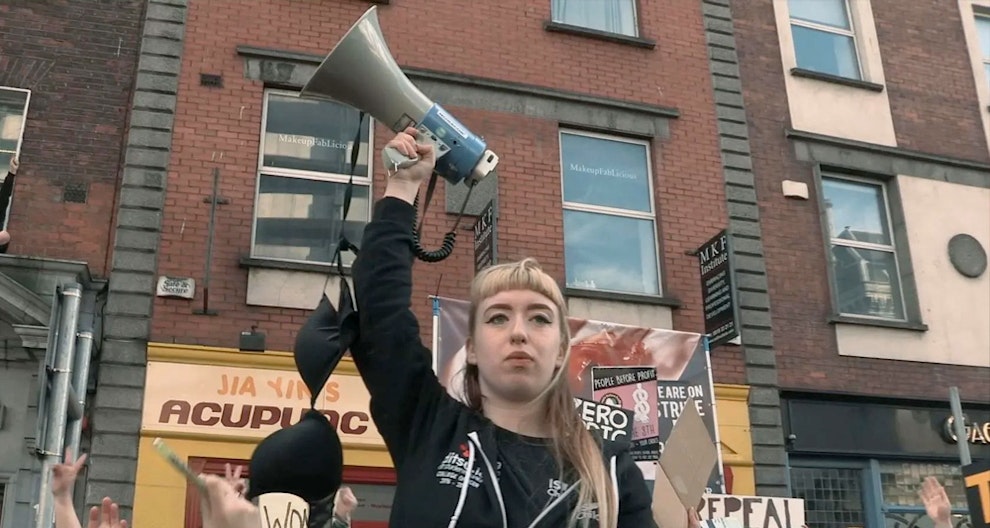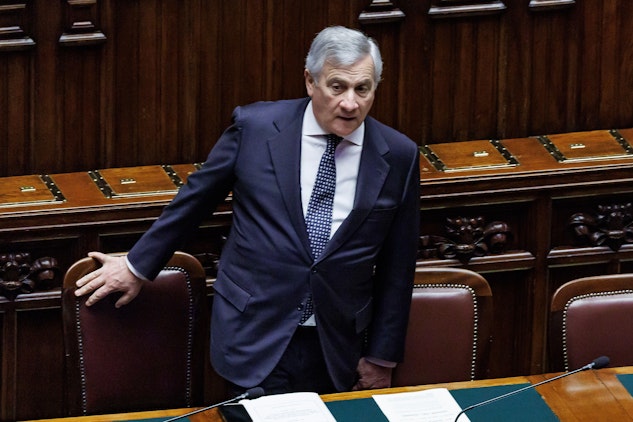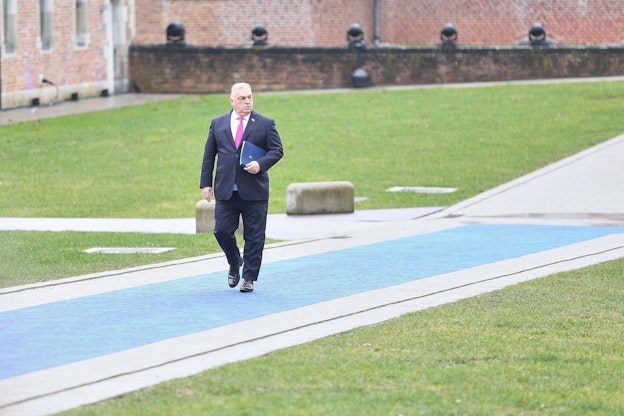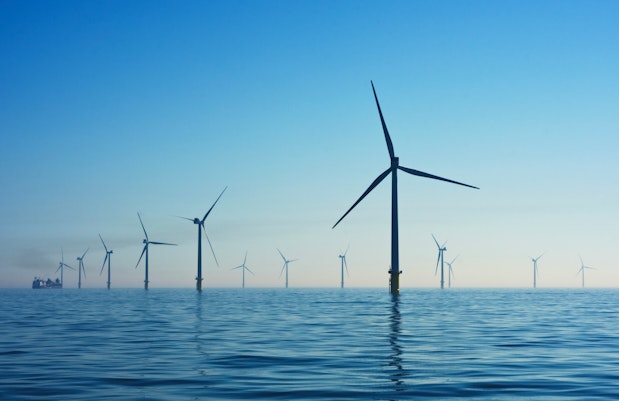Democracy has been increasingly under threat throughout the COVID-19 pandemic, with authoritarian regimes growing bolder in their attacks against democracy, human rights and the freedom of speech.
As part of the Green Screen project, which engages citizens in contemporary issues through films and debates, we explored how citizens can engage in further democratic processes and participate in politics during periods of crisis such as pandemics. What are the emancipatory fights of our time? And most pressingly, what instruments can we use to change the course of our countries today?
This month, we featured the film ‘The 8th’ and held a debate on citizen rights and democracy. The documentary by directors Aideen Kane, Lucy Kennedy and Maeve O’Boyle illustrates how feminist movements can make big steps to achieve equality and justice for women in our societies. Set in Ireland, it follows women's rights advocates in their fight to overturn one of the most restrictive abortion bans in the world. After a 35-year struggle, the pro-choice side radically shift tactics to try to bring an historically conservative electorate over the line.
Watch now: Fighting for change: Why the Rule of Law is critical to uphold democracies
This debate explored the emancipatory fights of our time and how citizens can use a variety of instruments beyond the voting booth to create change. It was kicked off with an introduction by Mar Garcia, Secretary General of the European Greens, and moderated by Sam Murray, a member of the EGP amendments committee. Murray explained the role of democracy and the rule of law in protecting citizen rights and holding space for change:
“Democracy and rule of law is not about enforcing a control on society but rather creating a space for society to evolve and ensure that human rights are respected as fundamental basis for such an evolution. We need citizens voices to be empowered and mechanisms for change and this week’s movie demonstrates what is possible.”
Garcia highlighted the significance of the film ‘The 8th':
“This film is an incredibly special one because it shows the changes of the legal framework in Ireland. So, this is about modifying the law and then giving rights to women. We thought this film was a nice way of explaining this concept that sometimes feels far away – the rule of law.
The debate considered the current state of democracies across Europe and defined and explored the rule of law as a mechanism which can be shaped by citizens and which serves them. A variety of ways in which citizens in their plurality of opinions about society can be represented were explored: from referendums to governmental councils. Ailbhe Smyth, Campaigner, Co-Director Together for Yes, also reflected on how the decision to repeal the 8th forged an Ireland which values women, their bodies and their choices, and the role of referendums to achieve change. A referendum gives citizens the opportunity to create debate and to assert the sovereignty of citizens in a democracy through citizen mobilisation. However, referendums are limited to a Yes or No answer and do not lend themselves to the more complex questions.
Debate highlights
“As a campaigner, unless the people rise and actually push our legislators from time to time to actually expand our understanding of democracy, expand our understanding of freedom, to understand and expand our needs in terms of our basic rights and freedoms... Unless the people rise and do that – and we can do that through elections and strong bottom-up mobilisation – we end up with a static non-evolving rule of law or status which does not correspond to the needs from people. The rule of law is there as the will of the people and also to serve the people. It is not just some kind of abstraction.” - Ailbhe Smyth, Campaigner, Co-Director Together for Yes
“What we defend in the European Parliament and with a majority – we have strong majority for that – is to defend European democracies but also rule of law which means independent of justice, a pluralism of media, access to a plurality of information, a certain number of possibilities of counterpowers so democracy doesn’t stop on the night of the vote when indeed a majority has been found, it goes on years after to have balance in the country and third the idea of fundamental rights and the idea that everyone is entitled to have rights and liberties, not only those that are in the majority and voted for the current government. (…) It is important to say that today in Hungary and Poland we do not know where the majority lies. It is not true to say that Orbán in Hungary and Morawiecki in Poland because capture of power means that it is difficult to know what the people really want.” - Gwendoline Delbos-Corfield, Member of the European Parliament
“However much we believe in the European Union – and it has a role – we do have to also accept that it has to come from within. I think it’s also something that clearly comes from the film – that in the end ultimately there must be a bottom-up mobilisation and it’s not something that can be done from the outside. You need to have patience for that as well. I do not want to condone or pass over negative developments that are happening [in Hungary and Poland] but we are also not doing ourselves a favour if we are expecting change tomorrow. (…) It is a generational task.” - Raphael Bossong, Researcher, Senior Associate, Stiftung Wissenschaft & Politik
“When I explain to young people, to children, who the Greens are, I talk about the Global Greens Charter are, my favourite principle out of all 6 is participatory democracy. I like that because when the Greens talk about participatory democracy, we are not only talking about a free electoral system which everyone has the right to participate in; we are also talking about other methods of active governance that we can be a part of so that citizens’ voices are actively heard on matters that most relate to them. I have a lot of issues with the current government in Malta but something that happened in 2013 was really inspiring in that they had set up for instance an LGBTQI consultative council to the government where members of the community (…) came together and discussed and drafted the laws that most impacted us.” - Mina Jack Tolu, Freelance Strategic Communications Consultant, International Secretary of ADPD
Caption: As part of the Artistic Spot, we showcased the work of queer artist Karol Radziszewski. He works with film, photography, painting, and installations to create interdisciplinary projects related to LGTBIQ+ rights and queer history. He is the founder of the Queer Archives Institute.
In a democracy, all citizens should retain their fundamental rights and those in the minority should be able to make their voices heard on the issues that matter to them. At the European level, it was highlighted during the debate that in the European Union we still only have a non-binding agreement on abortion, despite the especially critical context of the COVID-19 pandemic.
On the onset of the COVID-19 crisis, the European Greens were quick to demand that parliaments, civil society organizations and citizens are returned their full democratic powers through the recovery. We believe that governments should not use the pandemic as a pretext to weaken social and labour rights. Whistle-blowers exposing wrongdoings and abuses related to the crisis must also be protected. The Greens are also leading the fight on women’s rights, LGTBQI rights, and sexual and reproductive rights in many European countries.
Register from 1 November for free tickets to future film screenings! The upcoming session features the documentary film ‘The 8th', a story of Irish women and their fight to overturn one of the most restrictive abortion bans in the world. You can enjoy this film screening on The Green Screen platform, which will be made available for 48h next month, on 20-21 November! Free tickets are available, book yours NOW!
You can read more about our resolution ‘On the Future of Europe’, which inspired The Green Screen project.



